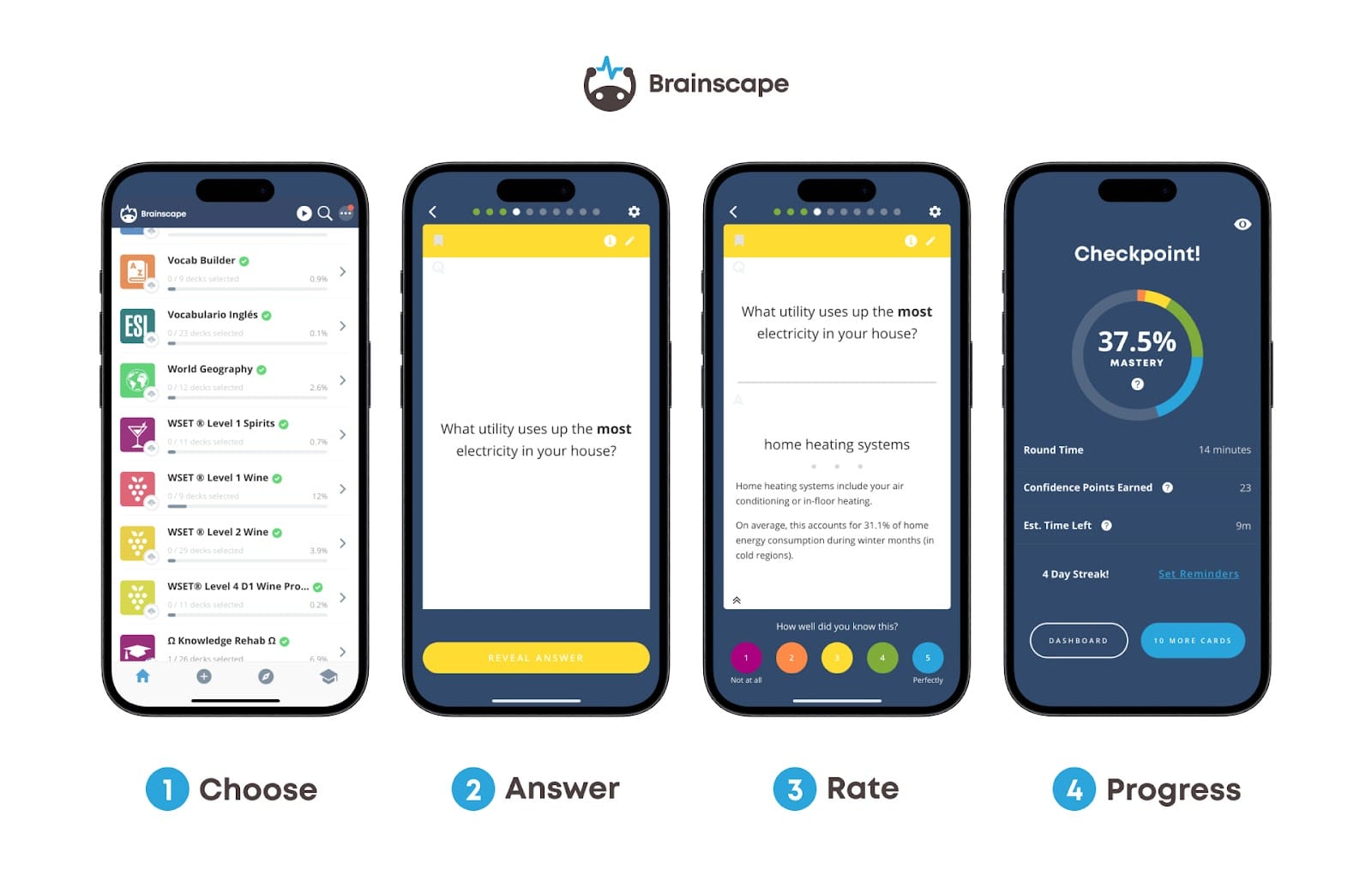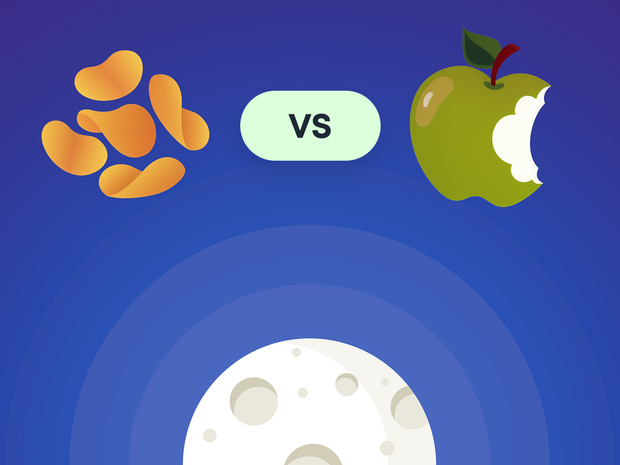Late-night studying has a vibe. It’s you, your notes, your slowly cooling beverage of choice… and a mysterious gravitational pull toward vending machines, cold pizza, or whatever’s lurking in the back of your fridge. We’ve all been there.
But while your brain deserves a standing ovation for pushing through the midnight grind, it also deserves better fuel than a bag of neon-orange chips. What you eat during late-night study sessions can either sharpen your focus or turn your brain into mashed potatoes.
Let’s talk about how to snack smart when the clock strikes study o’clock so you can stay alert, retain more, and maybe even feel like a functioning human the next day.
Preventing Procrastination
We're not here to shame you. We’ve all had that moment where “I’ll just take a 5-minute break” mysteriously becomes three episodes of a show we weren’t even watching before. Procrastination happens.
That said, the best way to avoid turning into a late-night snack gremlin is to not be studying at 2 am in the first place. Easier said than done? Sure. But with a few tweaks to your routine—like setting mini-deadlines, scheduling study sessions earlier in the day, and using a timer to stay focused—you can keep your nights free for sleep and sanity.
Still end up cramming once in a while? No judgment. We’ve got your back (and your brain) with smart, energy-boosting snack tips to power those occasional late-night marathons. Let’s dig in.
8 Late-Night Studying and Eating Tips
- Don’t keep “junk food” around. Chips, dips, and candy don’t just “appear” magically in your food cupboard. One reason you snack on junk is because you made the choice to buy it and bring it home! Change your environment, and change what you eat.
- Choose smart snacks. If you’re hungry, eat. But especially if it’s late at night, avoid refined sugar, or you'll weaken your memory and experience more fatigue. Keep plenty of healthier, lower-calorie foods around for when you’re a little hungry (fruit, beef jerky, tuna, cheese, sugar-free yogurt, nuts, etc.)
- Get physical during study breaks. Physical activity, even a short 5 minute walk, can increase oxygen to your brain, get your blood flowing again, and help you refocus on studying. Don’t eat food to stay awake—exercise instead.
- Take snack breaks rather than eating continuously. Everyone is different, but for grazers, it’s easy to eat a lot more calories than you’re aware of because you’re focusing more on the mental challenge and the words on the page rather than sensing if you’re still hungry or tasting the food. Taking a deliberate pause to eat mindfully without distraction may make you feel more satisfied.
- Portion snacks and meals. If you grab from the bag, it may be empty before you realize it. Serve snacks in a bowl or on a plate and put them away. A very large meal, more than 400 or 500 calories, will likely interfere with your studying by pulling blood to your digestive system rather than your brain.
- High-protein foods may help you stay alert. Eating a meal high in protein may help you feel more alert and motivated. Examples of high-protein foods: lean meat, beans, lentils, low-fat dairy, soy foods, high-protein snack bars, nuts (~2-4 Tbs). Excess carbohydrates may make us relaxed and feel sleepy.
- Include fluids, and be aware of the calories. Not only will you stay hydrated, but you’ll also get a movement break by visiting the restroom. Sometimes, we reach for food when we’re thirsty. If you’re dehydrated, you may find yourself prone to craving grapes or other watery foods. Make sure you get a minimum of 2 quarts a day, and more if you’re active or in hot weather. Avoid excess caffeine as it may affect the quality of your sleep.
- Avoid eating right before bedtime. Try to have your last snack at least 2 hours before going to bed. A large snack or meal right before sleep means your body is working on digesting that meal during the night, rather than resting and repairing other tissues. This interferes with the quality of your sleep and you may wake feeling tired. It’s also unlikely you need that energy at that time of the night.
FAQ: Is Eating Tips for Late-Night Studying
What should I eat late at night to study?
Go for brain-boosting, protein-rich snacks like nuts, yogurt, cheese, lean meats, or tuna. These options help you stay alert without the crash that comes from sugary or carb-heavy foods.
Should I eat at 11 pm if I'm hungry?
If you're genuinely hungry, a light snack is fine, especially something high in protein and low in sugar. Just try to eat at least two hours before sleep so your body has time to digest and wind down.
Should you eat at night while studying?
Yes, if your body needs fuel. Just be mindful of what and how much you eat. Smart snacking helps maintain focus, but constant grazing or overeating can backfire and make you groggy.
What to eat to avoid sleeping while studying at night?
Choose high-protein, low-carb foods like beef jerky, Greek yogurt, boiled eggs, or a small handful of almonds. These support mental alertness better than sugary or starchy snacks, which can lead to drowsiness.
The Real Secret to Late-Night Study Success
Let’s face it: late-night study sessions happen. And when they do, you now know how to snack like a genius—fueling your brain without falling into a bottomless bag of chips. But let’s not forget the real MVP of smarter studying: prevention. The best way to avoid midnight munchies is to avoid midnight studying altogether.
That’s where Brainscape comes in. Our smart flashcards use spaced repetition to help you study more efficiently, meaning you can learn twice as much in half the time—and hit the pillow instead of the panic button.

Pair that with solid habits like setting mini goals and using timers to stay on track, and you might just kiss those last-minute cramming marathons goodbye. But hey, if they still happen once in a while, you’ve got the snacks—and the study system—to handle it like a pro.
Additional Reading
- Does sugar help or hurt your studying?
- Optimize Your Brain Health for Effective Studying
- What's the Best Time of Day to Study for Optimal Learning?
References
Bermingham, K. M., May, A., Asnicar, F., Capdevila, J., Leeming, E. R., Franks, P. W., Valdes, A. M., Wolf, J., Hadjigeorgiou, G., Delahanty, L. M., Segata, N., Spector, T. D., & Berry, S. E. (2023). Snack quality and snack timing are associated with cardiometabolic blood markers: the ZOE PREDICT study. European Journal of Nutrition, 63(1), 121–133. https://doi.org/10.1007/s00394-023-03241-6
Budson, A. (2024, June 17). Ultra-processed foods? Just say no. Harvard Health. https://www.health.harvard.edu/blog/ultra-processed-foods-just-say-no-202406173051#:~:text=Avoid%20processed%20foods%2C%20which%20can,as%20hot%20dogs%20and%20bologna.
Harvard T.H. Chan School of Public Health. (2024, May 9). Mindful eating. The Nutrition Source. https://nutritionsource.hsph.harvard.edu/mindful-eating/
Hazell, K. (2011, November 22). Eating protein instead of sugar helps keep us awake and alert, say experts. HuffPost UK. https://www.huffingtonpost.co.uk/2011/11/22/eating-protein-instead-of-sugar-keeps-you-awake_n_1107273.html?guccounter=1&guce_referrer=aHR0cHM6Ly93d3cuZ29vZ2xlLmNvbS8&guce_referrer_sig=AQAAAEtkv8QA5fWSFHs9NZGBDEiOO_amROZ4b_GqZZrz6djQs6gxF7-nJd28w1Ch2ZD8ksIXLCID4XTUMaobwCTnP7hxvYRtBrGMSYSlFmdOiA2Y_2-AWxfiHROVsZqkH6KrRLgFeUQmhOvIPija_G-wWIl4hKMg4LOsn8b1TJdeFfkE
Hoffman, A. (2015, February 17). Midnight snacking is bad for your brain. Smithsonian Magazine. https://www.smithsonianmag.com/science-nature/midnight-snacking-bad-your-brain-180954295/
Rosen, G. (2017, March 31). This is why you eat more when you’re tired. Body and Soul. https://www.bodyandsoul.com.au/nutrition/healthy-food/this-is-why-you-eat-more-when-youre-tired/news-story/2da202ac6b03fc16f7abea0d422897ba
Wadyka, S. (2024, August 1). The Link Between Highly Processed Foods and Brain Health. The New York Times. https://www.nytimes.com/2023/05/04/well/eat/ultraprocessed-food-mental-health.html
